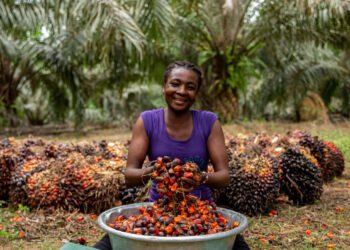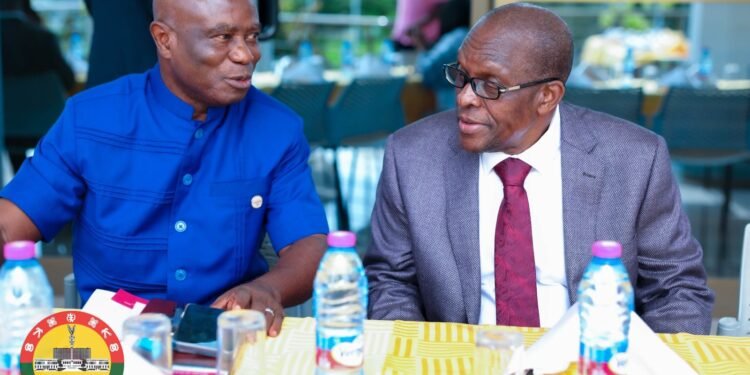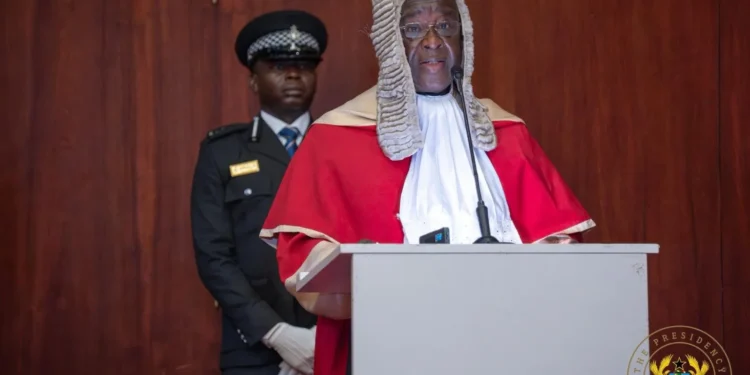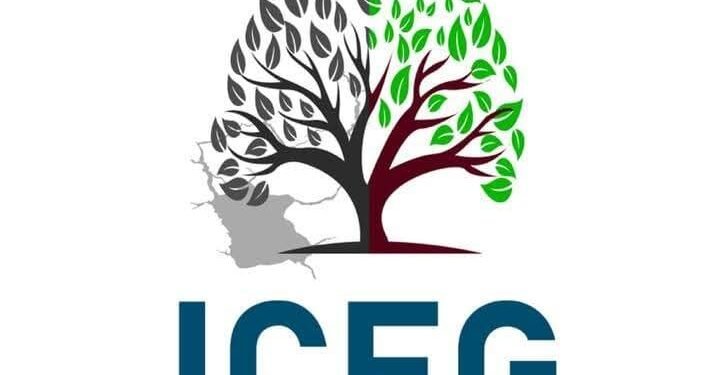In a virtual learning event, US Deputy Chief of Mission, Christopher J. Lamora joined officials from the Ghanaian government, academia, civil society, and the private sector to mark the end of the Sustainable Fisheries Management Project (SFMP). The SFMP is a seven-year, $24 million program funded by the US Agency for International Development.
Participants included Hawa Koomson, the Honorable Minister of Fisheries and Aquaculture Development; and Michael Arthur Dadzie, the Executive Director of the Ghana Fisheries Commission.
In his remarks, Deputy Chief of Mission Lamora commended the SFMP’s work to improve fisheries sector management.
“We should all celebrate our collective achievements while recognizing that more work is needed to rescue Ghana’s small pelagic fisheries, which are in a dire state.”
Christopher J. Lamora, US Deputy Chief of Mission
Moreover, he reaffirmed the US government’s willingness to work with stakeholders to rebuild fish stocks. This is because fish stocks have become increasingly vulnerable as a result of illegal, unreported, and unregulated fishing. He also expressed his government’s commitment to help ensure a locally sourced, nutritious, and sustainable supply of the protein.
He therefore called on all stakeholders to accelerate a shift from a top-down management approach to a cooperative one; to ensure that management decisions are informed by science and data to protect the vital contributions of coastal and marine ecosystems to provide nutrition and livelihoods; to align the need to protect the livelihoods of Ghana’s artisanal fisherfolk with the biological health of the fish species; and take bold steps to hold accountable those actors who violate the laws and regulations for the protection of Ghana’s marine fisheries.
On her part, Honorable Minister Koomson said “together we can change the narrative and support actions for sustainable management of Ghana’s fisheries.”
Successes of the Sustainable Fisheries Management Project (SFMP)
Through the SFMP, University of Rhode Island collaborated with the Ministry of Fisheries and Aquaculture Development and the Fisheries Commission. Purposefully, they partnered to strengthen data-driven decision-making; improve the fisheries sector regulatory framework; adopt responsible fishing practices to facilitate rebuilding Ghana’s marine fish stocks; and also ensure viable livelihoods for fisherfolk.
In 2019, the project facilitated Ghana’s first-ever one-month closed season for the small-scale marine canoe sector. This aided in the recovery of depleted species. Also, the project introduced a Canoe Identification Card system to better control the number of canoes active in the sector.
Furthermore, the project launched a National Anti-Child Labor and Trafficking Strategy for the fisheries sector to combat the horrible practice. Also, it introduced reforms to devolve fisheries management responsibilities to local communities and governments through the new National Co-Management Policy for the Fisheries Sector.
The SFMP complemented Ghana’s ongoing efforts to address the immediate effects of Covid-19 by disseminating information to fishing communities on health and safety protocols. This was through a widely viewed video produced by popular Ghanaian musician, Kofi Kinaata. Specifically, it piloted an economic safety net program with approximately 2,000 vulnerable households.

Read also: Prof. Akpalu calls for pragmatic steps to safeguard Ghana’s fisheries sector























